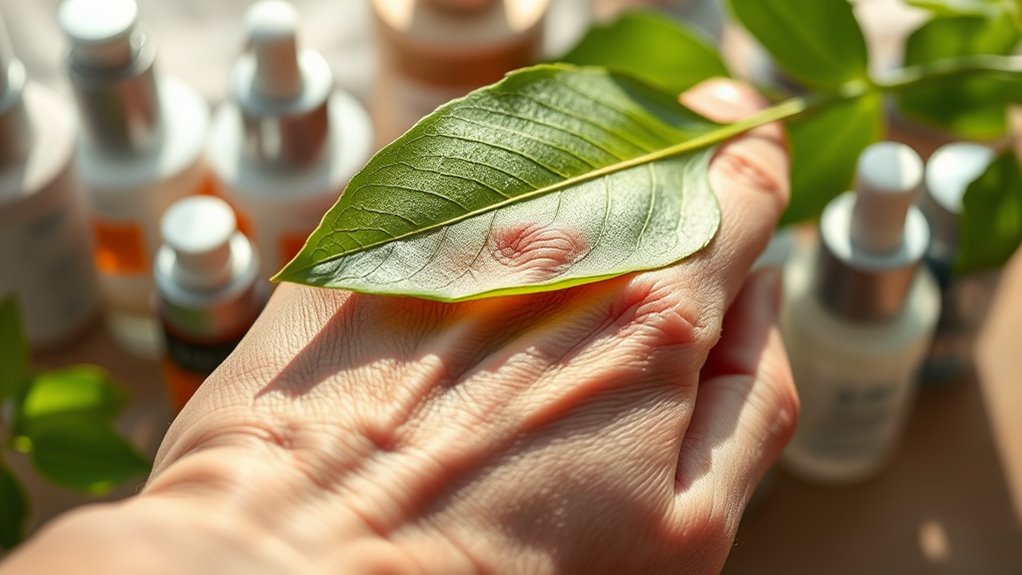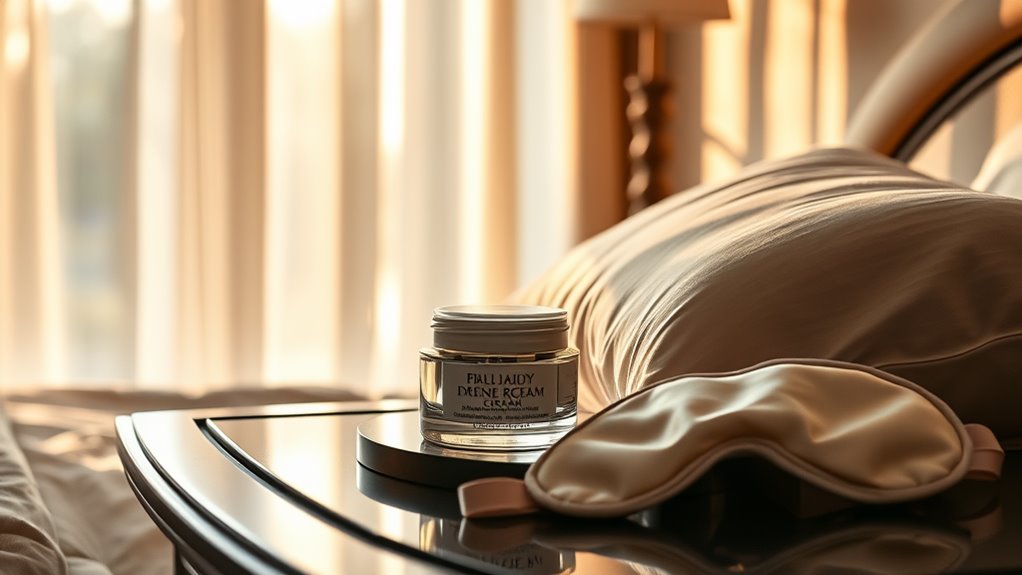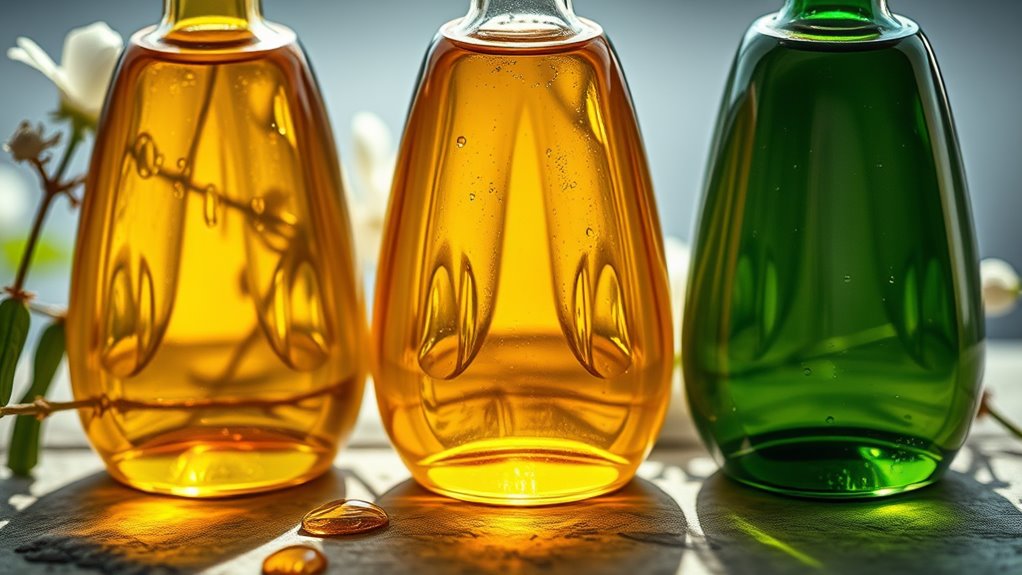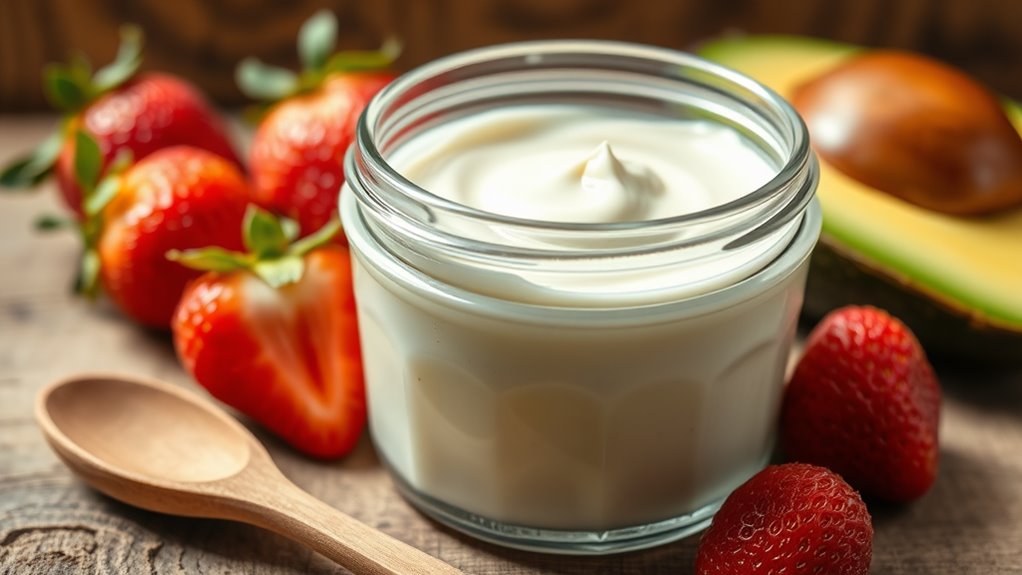Early Signs of Aging and How to Slow Them Down
You might notice early signs of aging like fine lines, dull skin, and decreased energy levels. To slow these changes, keep your skin hydrated with quality moisturizers, use sunscreen daily, and exfoliate regularly to boost cell turnover. Incorporating strength training and a balanced diet can also support changes in body composition and energy levels. By making these proactive choices, you’ll not only feel better but also start to enhance your overall appearance as you age.
Key Takeaways
- Regularly use high-quality moisturizers with hyaluronic acid to combat fine lines and enhance skin hydration.
- Protect your skin with broad-spectrum sunscreen to prevent age spots and uneven pigmentation from UV exposure.
- Incorporate antioxidants like vitamin C in your skincare routine to combat free radicals and promote skin health.
- Engage in regular exfoliation (2-3 times a week) to reveal a brighter complexion and enhance product absorption.
- Maintain a balanced diet and regular exercise to support overall energy levels and muscle mass as you age.
Fine Lines and Wrinkles
As you age, fine lines and wrinkles often become more pronounced, signaling the skin’s natural loss of elasticity and moisture.
To master aging prevention, it’s essential to adopt a proactive skincare regimen. Start by incorporating high-quality moisturizers that contain hyaluronic acid and peptides, which help retain moisture and promote collagen production.
Regular exfoliation can also enhance skin texture, allowing products to penetrate deeper and work more effectively.
Don’t underestimate the power of sun protection; a broad-spectrum SPF shields your skin from harmful UV rays that accelerate aging.
Finally, consider incorporating antioxidants, like vitamin C, into your routine to combat free radical damage. Additionally, proper skincare routines are crucial for maintaining skin health and minimizing signs of aging.
Loss of Skin Elasticity
As you age, you might notice your skin losing its firmness and bounce, a sign of diminishing elasticity. This loss can stem from various factors, including sun exposure and lifestyle choices. Fortunately, there are effective treatment options available to help restore that youthful energy. Implementing daily habits such as stress management can significantly improve your skin’s overall health and resilience.
Causes of Skin Elasticity
Loss of skin elasticity is primarily caused by a combination of intrinsic and extrinsic factors. Intrinsically, your skin naturally loses collagen and elastin as you age, weakening its structural integrity. Hormonal changes, particularly a decrease in estrogen during menopause, further exacerbate this loss.
Extrinsically, environmental factors play a significant role. Sun exposure leads to photoaging, damaging collagen fibers and accelerating elasticity decline. Pollution and smoking introduce free radicals, which can disrupt skin cells and hasten aging.
Additionally, poor nutrition and dehydration deprive your skin of essential nutrients and moisture, weakening its resilience. By understanding these causes, you can take proactive steps to protect your skin and maintain its elasticity longer. Knowledge is your most powerful tool in the fight against aging.
Effective Treatment Options
While aging is a natural process, there are effective treatment options to combat the loss of skin elasticity. Start with an extensive skincare routine that includes hyaluronic acid and retinoids to boost collagen production. Incorporate antioxidants like vitamin C to protect and rejuvenate your skin.
Consider professional treatments such as microdermabrasion or laser therapy, which promote cellular turnover and improve texture. Additionally, collagen supplements can enhance skin firmness from within.
Don’t underestimate the power of hydration—drink plenty of water and use a quality moisturizer to maintain skin plumpness. Finally, commit to a healthy lifestyle: balanced nutrition, regular exercise, and adequate sleep all play vital roles in preserving your skin’s youthful elasticity.
Master these strategies, and you’ll notice significant improvements.
Dull or Uneven Skin Tone
If you’ve noticed your skin looking dull or uneven, it might be an early sign of aging. This change can stem from various factors that affect your skin’s health.
To combat this issue, consider the following strategies:
-
Exfoliate Regularly: Removing dead skin cells helps reveal a brighter complexion. Aim for gentle exfoliation 2-3 times a week.
-
Hydrate: Keeping your skin hydrated is essential. Invest in a quality moisturizer that suits your skin type to enhance radiance.
-
Protect from Sun Damage: Daily sunscreen application shields your skin from harmful UV rays, preventing further discoloration and promoting even tone. Additionally, incorporating specific morning rituals can help stimulate collagen production, further improving skin health.
Thinning Hair
As you age, you might notice your hair becoming thinner, which can be disheartening. This change often results from a combination of genetics, hormonal shifts, and environmental factors.
To combat thinning hair, start by re-evaluating your haircare routine. Use a gentle shampoo and conditioner designed for volume. Consider incorporating a scalp treatment or serum with ingredients like biotin or caffeine, which can stimulate hair growth.
Additionally, a balanced diet rich in vitamins A, C, D, and E, along with omega-3 fatty acids, supports hair health. Incorporating nutrient-packed foods into your meals can significantly enhance the strength and growth of your hair. Regularly practicing stress management techniques can also make a significant difference, as stress often accelerates hair loss.
Stay proactive and informed, and you’ll be better equipped to maintain your luscious locks as you age.
Age Spots and Pigmentation
As you age, you might notice dark spots on your skin, commonly known as age spots. These changes in pigmentation can result from sun exposure and other factors. Fortunately, there are effective prevention techniques and treatment options you can explore to manage their appearance. Incorporating natural remedies such as lemon and apple cider vinegar can help fade these spots over time.
Causes of Age Spots
While aging is a natural process, certain factors can accelerate the development of age spots, also known as liver spots or solar lentigines. Understanding these causes can empower you to take control of your skin’s health.
Here are three primary culprits:
-
Sun Exposure: Prolonged UV exposure triggers melanin production, leading to dark patches on your skin.
-
Hormonal Changes: Fluctuations in hormones, especially during pregnancy or menopause, can increase pigmentation.
-
Genetics: Your family history plays a significant role; if your parents had age spots, you might too.
Prevention Techniques Available
To prevent age spots and pigmentation, you can adopt several effective strategies that protect your skin from damage.
First, consistently apply a broad-spectrum sunscreen with an SPF of at least 30, even on cloudy days. This shields your skin from harmful UV rays that accelerate pigmentation.
Next, incorporate antioxidants like vitamin C into your skincare routine; they combat free radicals and enhance your skin’s resilience.
Regular exfoliation, using alpha-hydroxy acids or gentle scrubs, can remove dead skin cells and promote a more even tone.
Additionally, consider wearing protective clothing and seeking shade during peak sun hours.
Finally, maintain a balanced diet rich in fruits and vegetables to nourish your skin from the inside out.
These proactive steps can markedly slow down the onset of age spots.
Treatment Options Explored
Even with preventive measures in place, age spots and pigmentation can still appear over time.
Fortunately, several effective treatment options can help you reclaim your skin’s youthful appearance. Here are three popular methods to evaluate:
-
Topical Treatments: Look for creams containing hydroquinone or retinoids, which can lighten dark spots and promote cell turnover.
-
Chemical Peels: These treatments exfoliate the skin, removing damaged layers and reducing pigmentation, revealing fresher skin underneath.
-
Laser Therapy: Targeted laser treatments can effectively reduce age spots by breaking down excess melanin and stimulating collagen production.
Dryness and Dehydration
As you age, your skin’s ability to retain moisture diminishes, often leading to dryness and dehydration. This can manifest as rough patches, flakiness, and a dull complexion.
To combat this, prioritize hydration by drinking plenty of water and incorporating hydrating foods into your diet. Use a high-quality moisturizer daily, focusing on ingredients like hyaluronic acid and glycerin, which attract and lock in moisture.
Don’t forget to protect your skin from harsh weather and environmental pollutants, as these can exacerbate dryness. Regular exfoliation helps remove dead skin cells, allowing your moisturizer to penetrate more effectively.
Changes in Body Composition
Dry skin isn’t the only change that comes with aging; shifts in body composition also become noticeable.
As you age, your body undergoes various transformations that can affect your health and appearance. Here are three key changes to watch for:
-
Muscle Mass Decline: You may lose muscle tissue, leading to reduced strength and metabolism.
-
Increased Fat Accumulation: Fat often redistributes, particularly around the abdomen, which can impact your overall health.
-
Bone Density Loss: Your bones may become less dense, increasing the risk of fractures.
Recognizing these shifts can empower you to take proactive steps in maintaining a healthier body composition.
Embrace strength training, balanced nutrition, and regular activity to slow down these changes effectively.
Decreased Energy Levels
While you mightn’t notice it at first, decreased energy levels are a common sign of aging that can impact your daily life. As you age, your body’s metabolism slows down, leading to fatigue and reduced stamina.
You might find it harder to maintain your usual pace or keep up with activities you once enjoyed. To combat this, focus on optimizing your nutrition and incorporating regular exercise into your routine.
Prioritize whole foods rich in nutrients, and aim for strength training and cardiovascular activities to boost energy levels. Additionally, make sure you’re getting enough quality sleep, as it plays an essential role in restoring your vitality.
Frequently Asked Questions
Can Stress Accelerate the Aging Process?
Absolutely, stress can accelerate the aging process. When you’re under pressure, your body produces cortisol, which can lead to various health issues. Managing stress effectively can help you maintain your energy and overall well-being.
How Does Diet Impact Early Signs of Aging?
Your diet plays an essential role in how your body ages. Consuming antioxidants, healthy fats, and vitamins can boost skin health, improve cellular function, and combat inflammation, ultimately helping you maintain a youthful appearance longer.
Are There Genetic Factors in Aging?
Yes, genetic factors play a significant role in aging. Your inherited traits influence cellular repair, metabolism, and overall longevity. Understanding these factors helps you make informed choices to enhance your health and potentially slow aging processes.
What Role Does Sleep Play in Skin Health?
Sleep plays an essential role in skin health; it’s during this restorative phase your body repairs itself. When you prioritize quality sleep, you enhance hydration, reduce inflammation, and promote a youthful, vibrant complexion.
Can Smoking Affect the Aging Appearance?
Yes, smoking definitely affects your appearance. It damages collagen and elastin, leading to premature wrinkles and dull skin. Quitting can rejuvenate your complexion, improving your skin’s health and reducing signs of aging over time.





